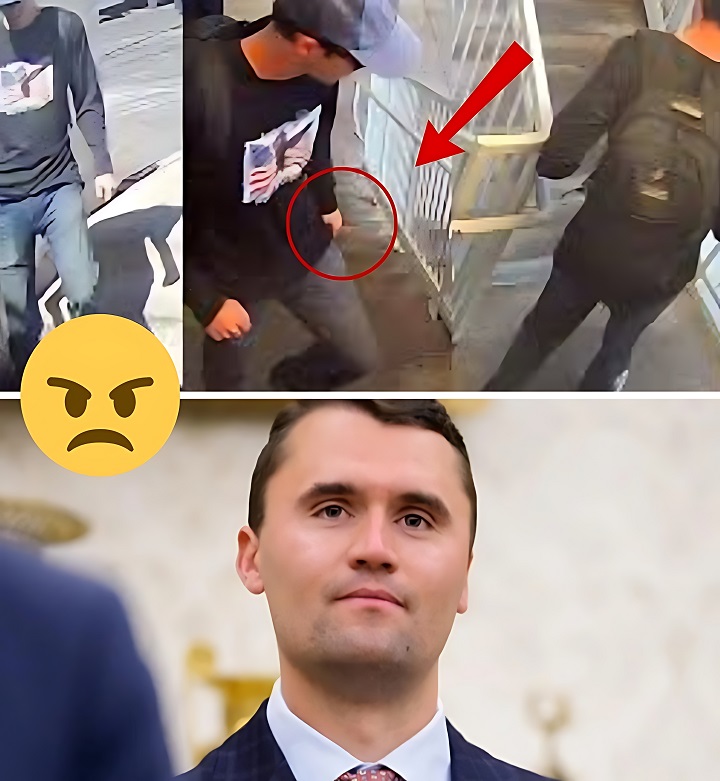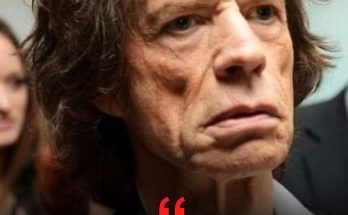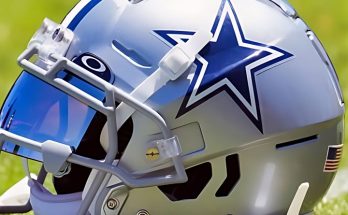In a stunning revelation that has gripped the nation, the FBI has announced a “perfect match” in DNA evidence tying 22-year-old suspect Tyler Robinson directly to the shocking assassination of conservative firebrand Charlie Kirk. The bullet-riddled tragedy unfolded on the sun-drenched campus of Utah Valley University (UVU), where Kirk, the co-founder of Turning Point USA and a vocal ally of former President Donald Trump, was gunned down mid-speech to a crowd of over 3,000 rapt supporters. As investigators peel back the layers of this brazen sniper attack, questions swirl like desert dust: Was this the act of a lone radical, or does it expose a deeper, more sinister web of political hatred? And what dark secrets from Robinson’s past could have ignited this powder keg of violence in the heart of America’s heartland?
The events of September 10, 2025, will be etched into the annals of U.S. political infamy. It was a crisp Wednesday afternoon in Orem, Utah, a quiet suburb nestled against the jagged Wasatch Mountains, when Kirk took the stage in UVU’s bustling courtyard. The 31-year-old activist, known for his unfiltered rants against “woke” culture and his role in mobilizing young conservatives, was in full throttle. His topic? “Reclaiming America’s Future from the Radical Left.” The audience—students, parents, and fervent fans—hung on his every word, their cheers echoing off the modern brick buildings of the sprawling campus. Little did they know, death lurked just 150 yards away, perched on a rooftop like a shadow from a thriller novel.
At approximately 12:45 p.m., a single, high-powered shot cracked the air. Kirk clutched his neck, blood blooming across his crisp white shirt, before collapsing in a heap. Chaos erupted: screams pierced the sky, students trampled in panic, and professors herded the terrified into locked classrooms. Eyewitnesses later described a “ghostly figure” fleeing across the rooftop, leaping to the ground, and vanishing into the wooded fringes bordering the campus. Within minutes, the university locked down, sirens wailed, and the once-vibrant quad became a crime scene tape-wrapped tomb. Kirk was pronounced dead at a nearby hospital, his final words reportedly a defiant gasp: “Fight… on.”

The manhunt that followed was a high-stakes drama worthy of Hollywood. Dubbed “Operation Patriot Shield” by Utah Governor Spencer Cox, it mobilized over 20 law enforcement agencies, including the FBI under the controversial Director Kash Patel. Drones buzzed overhead, K-9 units scoured the underbrush, and tips flooded in—over 11,000 by the end of the first day. Surveillance footage captured the suspect’s arrival: a gray Dodge Challenger pulling into the lot at 8:29 a.m., disgorging a young man in a maroon T-shirt, light shorts, black hat, and sneakers. He ascended to the rooftop, shed his outer layers, and waited like a predator in the scrub.
For 33 grueling hours, the nation held its breath. President Trump, speaking from the White House, thundered, “This is war on our ideas—on our youth. We’ll hunt this coward to the ends of the earth.” Social media exploded with conspiracy theories: Was it Antifa? A deep-state hit? Or just another symptom of America’s fractured soul? Patel, facing scrutiny for his own Trump-era loyalties, posted cryptic updates on X, fueling the frenzy. One false alarm saw two innocents briefly detained and released, heightening the tension. Then, on September 12 at 10 p.m., breakthrough: Robinson surrendered at his family’s modest home in Washington, Utah, 260 miles southwest of the crime scene.
The tip that cracked the case? Family. Robinson’s father, a stoic electrician, recognized his son in the FBI’s grainy suspect photos and confronted him. “He confessed,” Cox revealed at a packed press conference, his voice thick with gravity. “Tyler admitted it all—said Kirk was ‘spreading hate’ and had to be stopped.” A family friend relayed the bombshell to authorities, who swooped in. Robinson, handcuffed and stone-faced, was booked on charges of aggravated murder, obstruction of justice, and felony discharge of a firearm. No bail. His mugshot—a haunted young man with tousled hair and hollow eyes—splashed across every screen, a stark contrast to the “squeaky clean” kid his neighbors remembered.
But the real jaw-dropper came on September 15, the current date, when FBI Director Patel dropped the DNA hammer during a fiery briefing in Salt Lake City. “The results are unequivocal,” Patel declared, flanked by grim-faced agents. “A perfect match—100%—between biological traces from the sniper’s nest and Tyler Robinson’s profile.” Forensic teams had combed the rooftop: palm prints smeared on the ledge, a forearm imprint from where he’d braced for the shot, smudges ripe for DNA swabbing, and even a shoe print etched in the dust. The murder weapon? A Mauser .30-06 bolt-action rifle, wrapped in a dark towel and dumped in nearby woods, its casings engraved with cryptic phrases like “End the Hate” and “No More Lies.” Ballistics confirmed: one bullet, neck entry, instant kill.
Who is Tyler Robinson, this enigma from Utah’s red-rock heart? Born in 2003 in St. George, a bastion of conservative Mormon values, he was the picture of suburban promise. High school at Pine View: 4.0 GPA, scholarship to Utah State University for pre-engineering. Videos show a beaming teen reciting his $32,000 merit award letter, his mother’s proud tears glistening. Classmates recall a “reserved genius”—quiet, video-game obsessed, comic-book aficionado, never one to stir the pot. “He was the kid who’d fix your computer for free,” one former friend told reporters, voice cracking. “Politics? Barely a peep.”
Yet cracks appeared post-graduation. Robinson lasted one semester at Utah State in 2021 before dropping out. He pivoted to Dixie Technical College’s electrical apprenticeship, earning his license in 2022. Neighbors describe a “good Mormon family”—outdoorsy hunters, ATV riders, churchgoers. But whispers emerged: Robinson’s growing disillusionment. A relative told investigators he’d “gotten more political lately,” railing against “hypocrites on the right.” At a family dinner weeks before the shooting, he fixated on Kirk’s UVU event. “Full of hate, spreading division,” he allegedly vented, echoing left-leaning critiques of the activist’s fire-and-brimstone style.
Deeper dives reveal a boy adrift. Online sleuths unearthed a Discord account—”Tyler”—linked to Robinson via roommate chats. Messages seethe with anti-conservative fury: rants about Turning Point USA as “youth brainwashers,” memes mocking Kirk’s Trump fealty. Voter records? Unaffiliated, inactive—never cast a ballot. Hunting trips with Dad explain the marksmanship; Instagram pics from 2017 show a teenage Robinson grinning beside a felled buck, rifle in hand. But the roommate bombshell: Governor Cox disclosed Robinson dated a trans woman, who was “shocked” by the act and is cooperating fully. “It shattered her,” Cox said. “Tyler’s rage wasn’t just political—it was personal, tangled in identity and betrayal.”
As Robinson awaits formal charges on September 16—prosecutors eyeing the death penalty—the motive puzzle taunts. Was it ideological jihad? Kirk, 31, had enemies aplenty: his organization mobilized millions for Trump, but drew fire for inflammatory rhetoric on immigration, gender, and race. Critics branded him a “hate merchant”; fans, a prophet. Robinson’s family dinner diatribe hints at shared disdain, but no manifesto surfaced. No co-conspirators. FBI forensics wizard Bryanna Fox, ex-agent turned criminologist, warns: “Political assassins crave the spotlight. This feels like a cry for chaos in a polarized world.”
The fallout ripples far beyond Utah’s canyons. UVU remains shuttered, a ghost campus under yellow tape, students retrieving belongings under armed guard. Makeshift memorials—flowers, crosses, “Fight On” signs—dot the quad, drawing pilgrims. Trump’s orbit mourns: VP JD Vance calls it “the left’s war on truth.” Liberals decry knee-jerk blame, pointing to rising right-wing threats. Patel, under fire for a botched early tweet (“Subject in custody—then released!”), touts the DNA win as vindication. Yet critics snipe: Was the manhunt bungled? Why the forearm print—a rare forensic gem—left behind?
Broader strokes paint a nation on edge. This is no isolated shot; it’s the latest in a grim parade: January 6 echoes, Trump assassination bids, Pelosi home invasion. Political violence surges—FBI stats show a 50% spike since 2020. Utah, once a sanctuary of civility, now ground zero. Governor Cox, a moderate Republican, pleads for unity: “Hate wins if we let it divide us.” But as Robinson’s arraignment looms, whispers of conspiracy fester. Did online radicals egg him on? Was the trans angle a red herring for deeper grievances?
In the end, the DNA match seals Robinson’s fate—forensically, at least. But the “why” lingers, a black hole sucking in America’s soul-searching. Charlie Kirk, silenced mid-sentence, leaves a void: his TPUSA empire, his podcast empire, his unyielding crusade. For Tyler Robinson, the golden boy turned grim reaper, the trial will unearth truths—or bury them deeper. As the Wasatch winds howl, one question haunts: In a land of endless horizons, how far can hatred travel before it strikes home?



